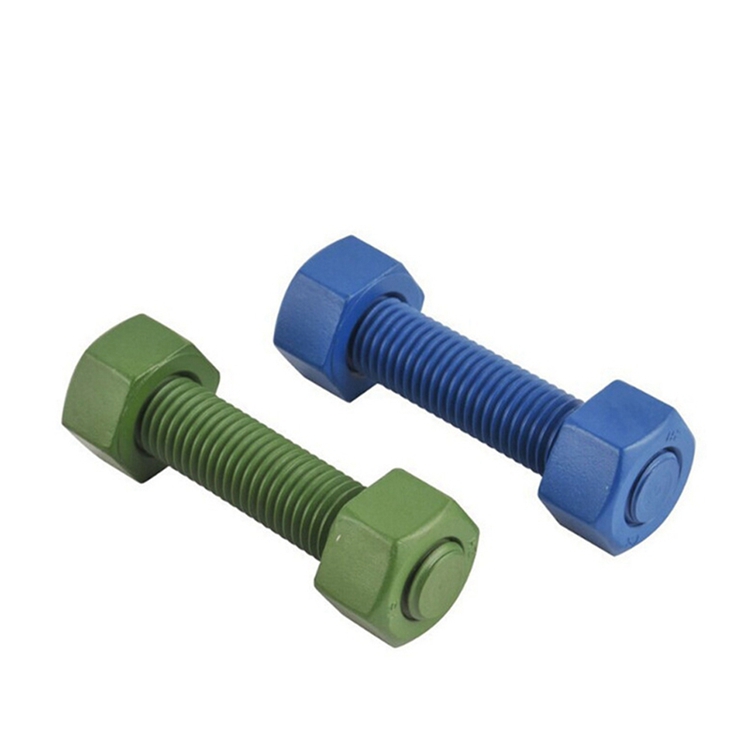china m20 stud bolt
Oct . 06, 2024 23:14 Back to list
china m20 stud bolt
Understanding China M20 Stud Bolts Specifications and Applications
The M20 stud bolt is a critical component in various engineering and construction applications. Known for its robust design and high tensile strength, this type of stud bolt is widely utilized in building structures, machinery, and automotive industries, among others. In this article, we will explore the specifications, manufacturing standards, and applications of M20 stud bolts produced in China.
Specifications of M20 Stud Bolts
The designation 'M20' indicates that the bolt has a metric thread diameter of 20 mm. M20 stud bolts come in various lengths and can be made from different materials, including carbon steel, stainless steel, and alloy steel, providing options for various mechanical and environmental requirements. The mechanical properties of M20 stud bolts are governed by the specific material used; for example, carbon steel bolts may offer good tensile strength while stainless steel options can provide excellent resistance to corrosion.
The most common thread pitch for M20 bolts is 2.5 mm, although fine threads (like M20 x 2) are also available for specialized applications. M20 stud bolts can conform to various standards including ISO, DIN, and ASTM, ensuring compatibility and reliability across different sectors.
Manufacturing Standards
China is a leading producer of fasteners, including stud bolts, meeting global quality standards. The manufacturing of M20 stud bolts involves several stages, from selecting raw materials to heat treatment and surface finishing. Quality control measures are enforced at each stage to ensure that the bolts meet specification requirements for tensile strength, yield strength, and hardness.
china m20 stud bolt

In addition to traditional manufacturing methods, some manufacturers in China are adopting advanced technologies like cold forging and CNC machining to enhance precision and reduce production costs. Surface treatments, such as galvanization and passivation, are also commonly applied to improve corrosion resistance and increase the service life of M20 stud bolts.
Applications of M20 Stud Bolts
M20 stud bolts are utilized in a variety of applications. In construction, they secure structural components, ensuring stability and safety in buildings and bridges. In mechanical engineering, they are used to assemble machines and equipment, where high strength is required to withstand dynamic loads.
In the automotive industry, M20 stud bolts are crucial in connecting engine components and chassis parts, providing the robustness needed for vehicles to endure operational stresses. They also find applications in oil and gas pipelines, wind turbines, and other industrial settings where reliability and strength are critical.
Conclusion
The M20 stud bolt represents a versatile and essential fastener in various industries. Its widespread use in construction, automotive, and mechanical engineering underscores the importance of quality and precision in manufacturing. As China continues to advance its manufacturing capabilities and adhere to international standards, the M20 stud bolt’s reputation for reliability and strength solidifies its place as a go-to component in myriad applications. As industries evolve, the innovation and improvement in specifications of stud bolts will likely follow, further enhancing their role in modern engineering.
Latest news
-
High-Quality Panel Stud Bolt Reliable Panel Stud Bolt Factory & Suppliers
NewsJul.08,2025
-
High-Precision Fine Thread Locknuts Manufacturer & Supplier Custom Solutions
NewsJul.08,2025
-
PH Imperial Stud Bolt – High Strength Fasteners from Leading Supplier & Factory
NewsJul.07,2025
-
High-Quality Allen Wrench Bolts Leading Factory, Company & Suppliers
NewsJul.07,2025
-
Wholesale Ball Stud Bolt - High Quality Supplier & Factory Price Reliable Wholesale Ball Stud Bolt Company
NewsJul.06,2025
-
High-Strength Alloy Bolts Manufacturer & Supplier Quality Alloy Fasteners Factory
NewsJul.06,2025
